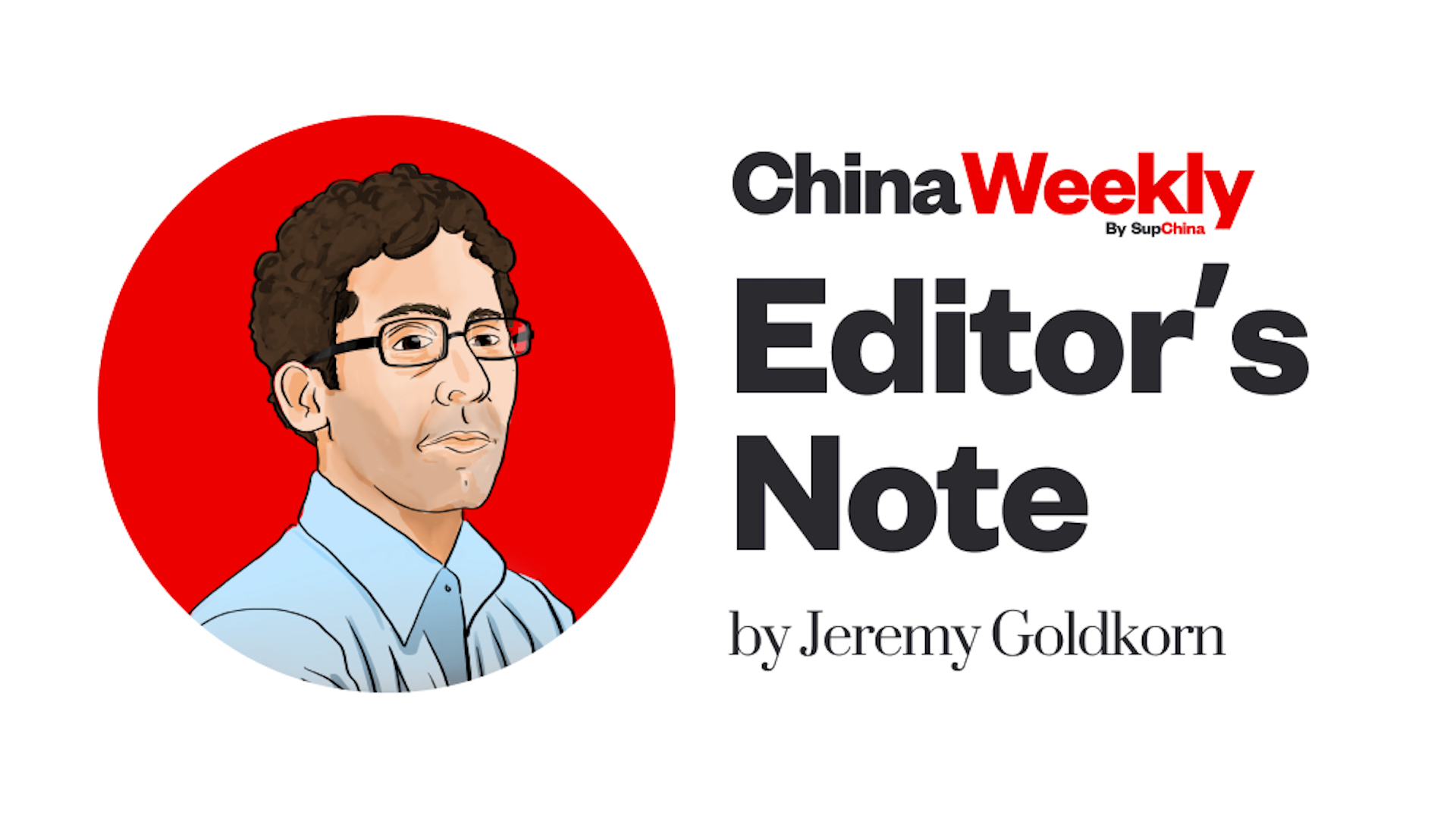Was the ‘Winter Olympics Pact’ a deal with the devil? — Editor’s Note for Friday, February 25, 2022
A note for readers from Jeremy Goldkorn.

Dear reader,
Vladimir Putin invaded Ukraine this week in what has been called “the biggest attack on a European state since World War Two.”
State media and internet censors in China have ensured that discussions of the topic is muted, but outside the Great Firewall there is all kinds of theorizing about what Beijing knew in advance of the Russian attack, and what China’s position and messaging is going to be.
The New York Times reports that “U.S. officials repeatedly urged China to help avert war in Ukraine” by sharing intelligence on Russia’s troop buildup, but that they were “repeatedly rebuffed” by their Chinese peers. The Wall Street Journal says that Xí Jìnpíng 习近平 and his advisors simply did not believe Putin would start a war: “The persistent brushing off of the invasion risks, say people with knowledge of Beijing’s inner workings, went into Mr. Xi’s calculus in signing on to a deeper partnership with Russia on February 4, the opening day of the Beijing Winter Olympics.”
The February 4 meeting was billed as a “Winter Olympics Pact” (冬奥之约) by state media. The People’s Daily, the voice of the Communist Party, portrayed the China-Russia relationship as “a big ship” helmed by two heads of state. This ship features “the highest degree of mutual trust, the highest level of coordination and the highest strategic value.”
At the meeting itself, Russia restated its support for China’s positions on Taiwan, and China notably backed Russia’s stance to oppose the enlargement of NATO.
I find it difficult to believe that Xi did not know the invasion was coming, even if he wasn’t privy to the exact date. Even if Putin told Xi nothing at all about Ukraine, “there was talk of war for weeks on the news, and there is really no need to inform China of the exact date,” as one journalist at a Chinese state media organization tweeted.
Nonetheless, Putin’s invasion does put the Chairman of Everything in an awkward situation. Former U.S. diplomat and vice president of the Carnegie Endowment for International Peace Evan Feigenbaum wrote:
Beijing is trying to strike an impossible balance by seeking to pursue three goals simultaneously: a strategic partnership with Russia, commitment to long-standing foreign policy principles of “territorial integrity” and “noninterference,” and a desire to minimize collateral damage from EU and U.S. sanctions.
Beijing cannot reconcile these three competing objectives. And since it cannot have all three, it will have to jettison one or another, or else uncomfortably shift its position from day to day under the glare of international scrutiny. China’s almost certain choice will be to abandon its principles while prioritizing power politics and practical considerations.
Beijing has not made any choices yet. But a United Nations Security Council vote being held today condemning Russia’s actions might force China to signal its allegiance more clearly.
There has been some non-committal mumbling. Xí Jìnpíng 习近平 spoke to Vladmir Putin by phone today, with the focus “on exchanging views on the current situation in Ukraine,” according to the official Chinese readout, which you can read together with the Russian readout on Neican.org. Although Xi sounds far from enthused about the invasion, both versions take care to mention one of Beijing’s favorite catchphrases for criticizing the U.S.: “All countries should abandon the Cold War mentality.” And just as we are wrapping up this newsletter, the Foreign Ministry has released a completely vanilla “five-point position on the Ukraine issue.”
Meanwhile, as the commentariat speculated about lessons China will take from the Ukraine invasion with regards to Taiwan, China’s ambassador Qín Gāng 秦刚 tweeted, in Washington DC at 3:34 a.m.:
We are ready to realize peaceful reunification with utmost sincerity and efforts. “Taiwan independence” separatist forces are the biggest obstacle to China’s reunification. If they are allowed to go down the dangerous path, risks for tension will be heightened.
We live in interesting times.
Our phrase of the week is Blind Mountain morals (盲山道德 mángshān dàodé), which was coined on Chinese social media to describe the behavior of villagers who were complicit in the abuse of the shackled woman of Xuzhou.






